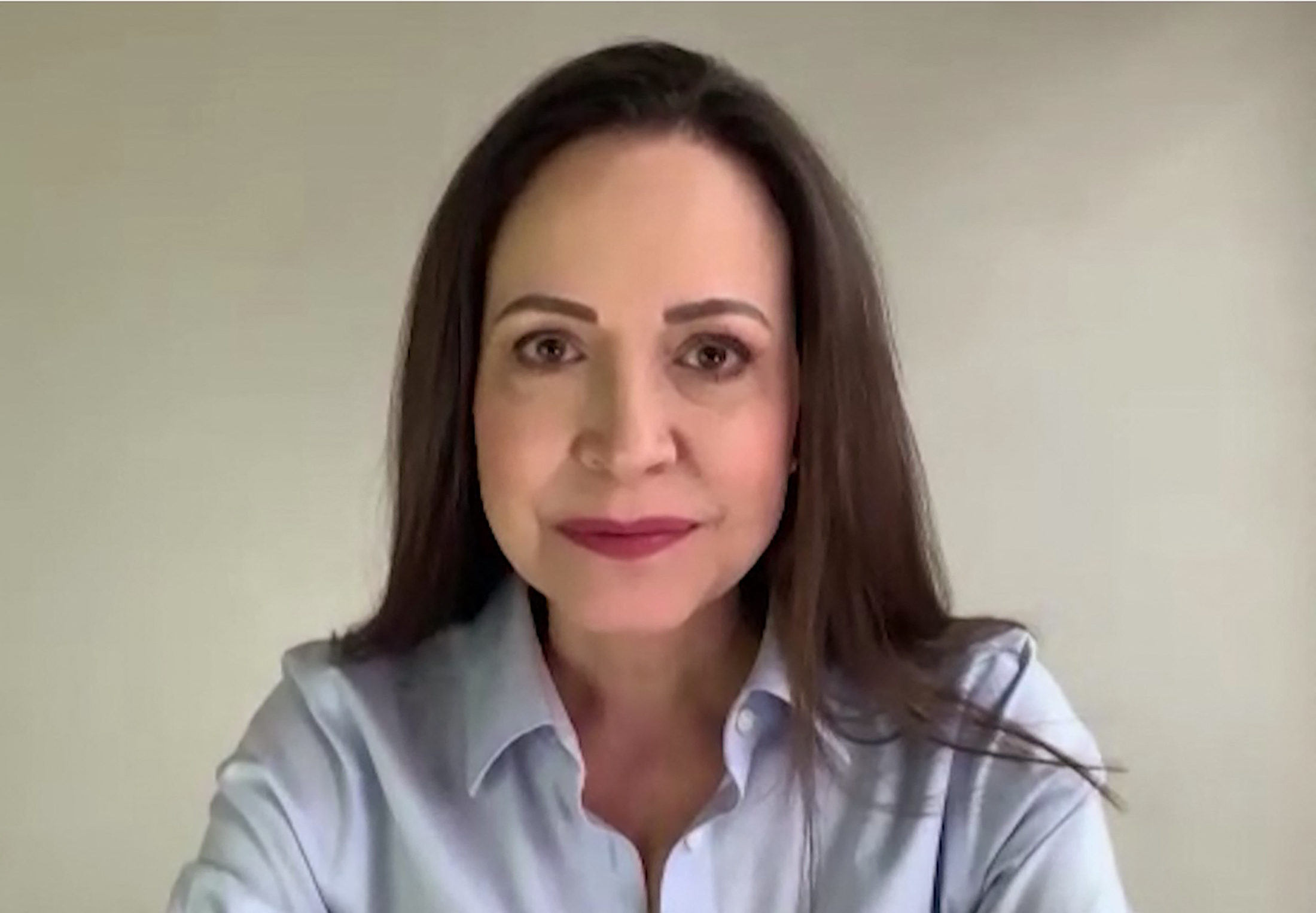- May 30, 2025
Opposition leader Machado calls Venezuela’s Maduro regime a ‘sinking ship.’ Is it?

In an extended interview via Zoom, Machado told me recently, “I’m worried more than anything about a new wave of repression” against opposition leaders, including herself, in the aftermath of the U.S. decision on Chevron’s oil license in Venezuela and the country’s sham May 25 legislative elections.
Days before the elections, the Maduro regime arrested more than 70 opposition leaders, including top opposition figure and Machado ally Juan Pablo Guanipa. They were accused of being part of a “terrorist network,” the regime’s standard accusation against anybody who calls for a restoration of democracy in the country.
Machado told me she is in hiding in an undisclosed location in Venezuela, and has lived “in total isolation” for the past 10 months. Like hundreds of other opposition activists, she has been living that way since Maduro stole the July 28 presidential elections and unleashed a brutal wave of repression, she said.
She told me that, for security reasons, “I can’t get out on the street or see anyone.” She added, “Absolutely no one.”
The partial revocation of the U.S. government’s license for Chevron’s operations is a big deal in Venezuela, because the country is bankrupt and depends on oil exports for 90% of its export income. Chevron’s oil exports account for about 30% of Venezuela’s total oil exports — and much-needed cash for the government.
The Trump administration, after issuing conflicting announcements, said it will revoke Chevron’s license to export oil from Venezuela, although it will allow the firm to keep maintenance operations in the country. Asked about that, Machado said it is a “perfectly welcome and safe” decision.
“We need to transform Venezuela from a criminal state in the Americas into an energy hub, and to do that we’ll need huge oil investments,” Machado told me. “So we need them to maintain a minimal operation in which they don’t provide resources to the government, but are ready for when the time comes to invest heavily in Venezuela.”
Machado says Maduro’s regime is increasingly isolated internationally, and facing an “unsustainable and irreversible” economic crisis.
The U.N. Economic Commission for Latin America and the Caribbean projects the Venezuelan economy will shrink by 1.5% this year. Venezuela’s private Ecoanalítica research firm calculates it will fall by as much as 4%.
“It’s impossible for the economy not to go further downhill,” Machado told me. “Since July last year, long before the latest U.S. sanctions, we’re seeing a three-digit annual inflation rate. The minimum wage is $1.50 a month. Schools and hospitals are crumbling.”
The Venezuelan dictatorship “is a sinking ship,” she told me. “Today, none of the regime’s traditional allies of the past — Russia, Iran, Syria, China — have the power or the will to pump more money into Maduro’s regime. That’s something that’s happening for the first time in Venezuela.”
Machado added that the May 25 legislative farce resulted in a “monumental defeat” for Maduro, because only 12% of eligible voters went to the polls, according to opposition estimates. Machado had called on Venezuelans to boycott the elections, rightly describing them as a farce.
To be sure, there are many reasons to doubt that the Maduro regime is a “sinking ship.” Maduro declared himself the winner of 83% of the votes for Congress and 23 out of 24 governorships — three more than he already had. The army still supports him, and the Venezuelan opposition is more divided than a year ago, when all major opposition figures supported Machado’s presidential candidate Edmundo González Urrutia.
Still, Maduro faces the biggest economic crisis since 2019, amid low world oil prices and waning appetite by China and Russia for new Venezuelan loans. I’ll explain in more detail in my next column, but Maduro is far from out of the woods — he may soon face even tougher times.

